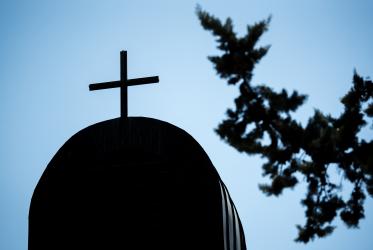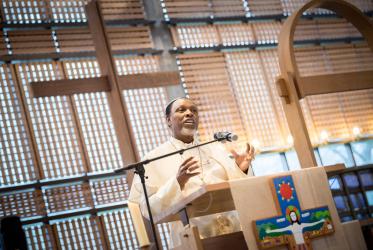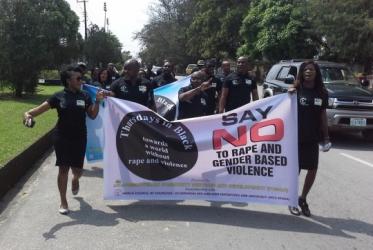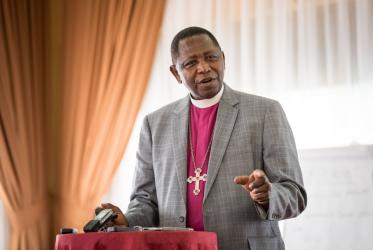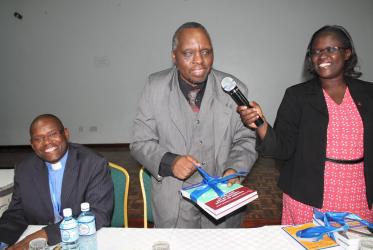Displaying 21 - 40 of 60
Young Africans are eager to grapple with challenges
09 January 2020
Regional forum in Nigeria centers on banning nuclear weapons
04 September 2019
Young people in Nigeria focus on positive masculinity, femininity
14 December 2018
In Nigeria, Thursdays in Black is flourishing
26 March 2018
Walking together against hatred and violence
26 February 2018
“Facing the storm of HIV, we can move together, be agents of change”
06 September 2017
WCC general secretary mourns lost lives, calls for end to violence
11 December 2016
New theological materials offer fresh perspective on disabilities
08 December 2016
New Executive Committee members elected in Trondheim
28 June 2016
WCC conference explores ecological injustice in Uganda
21 April 2016


